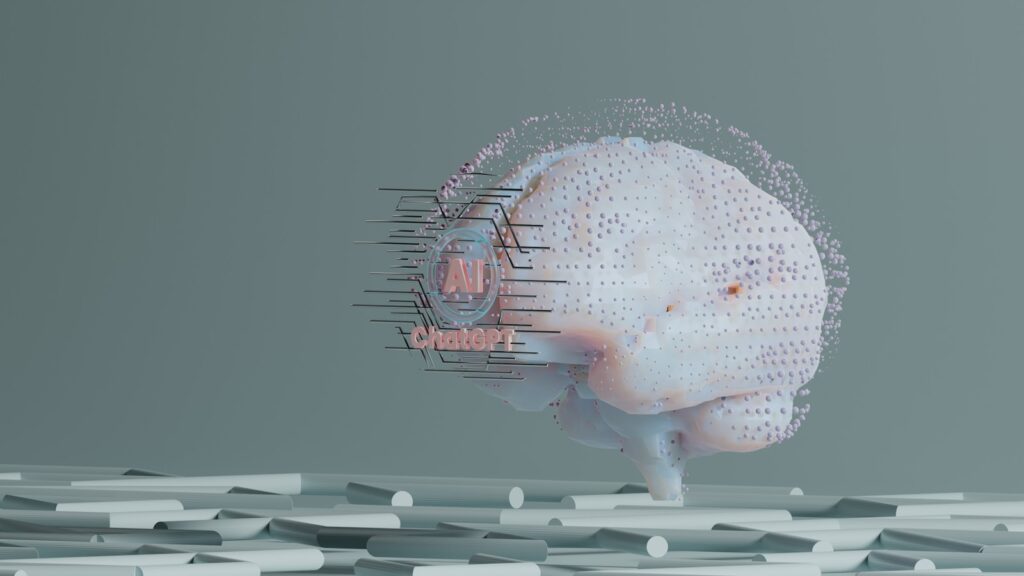Recent research by Adviser Plus reveals that the UK is in the midst of a burnout crisis, with 72% of organisations reporting a rise in mental health-related absences. Could artificial intelligence (AI) offer solutions to this crisis? Recent Unmind research suggests it could, with 9 in 10 HR leaders believing AI will be significant in addressing workplace mental health challenges and 70% already implementing these technologies.
With AI’s impact set to be transformative, here’s how HR leaders can leverage this technology to enhance workplace mental health support and boost productivity within their teams.
Offering personalised support with AI
HR leaders can integrate AI into daily workflows, revolutionising the way they approach mental health support by delivering hyper-personalised care. If integrated properly, AI will enable HR leaders to learn about and understand each employee’s unique patterns and preferences, ensuring mental health support becomes a seamless, integral part of the workday.
This is not about replacing human interaction, but enhancing it with AI’s precision and responsiveness, creating a support system that is both intuitive and unobtrusive.
To seamlessly integrate these solutions into daily working practices, HR leaders should look to adopt AI tools that provide personalised mental health resources. Once integrated, leaders can continuously monitor how employees engage with these tools to refine and improve support systems.
Automating HR operations
Artificial intelligence is also transforming HR operations. By allowing routine tasks to be automated, HR professionals gain valuable time to focus on strategic initiatives centred around what truly matters – people. This shift is not just about efficiency, but also about building a culture where wellbeing and productivity are interlinked.
Automating administrative tasks such as scheduling and payroll can save HR teams precious time, which they can use to engage more with employees, fostering a supportive work environment.
Taking a proactive approach with predictive analytics
Predictive analytics is one of the most useful AI tools HR leaders have at their disposal. Drawing on vast pools of data, predictive analytics can identify trends and spot problems as – or even before – they develop.
This empowers HR teams to offer a proactive approach to employee wellbeing by enabling them to intervene before issues escalate. HR leaders should harness the power of predictive tools to foresee and address potential mental health issues, and develop strategies based on this data, to support employee wellbeing proactively rather than when it’s too late.
Not only does such an approach improve employee wellbeing, it also helps ensure resources can be allocated more effectively, saving businesses both time and money.
Balancing innovation with empathy
Despite the benefits of AI, Unmind’s research indicates that 43% of HR leaders worry that its widespread adoption in workplace mental health could reduce human touch and empathy. It is crucial to ensure that AI enhances rather than replaces human interaction and that empathy and understanding remain at the core of wellbeing strategies.
Employees may also harbour concerns over privacy, and ensuring teams are educated about confidentiality and anonymity requirements will be necessary to alleviate these worries. Selecting AI tools that adhere to rigorous clinical standards helps safeguard employee wellbeing.
Striking a balance between personal relationships and AI tools is also key here. AI chatbots, for example, offer immediate, round-the-clock access to mental health resources and provide HR with actionable insights, enabling informed decision-making. This frees up managers to focus on sensitive tasks, empowering them to support their teams’ mental health more effectively.
Knowing when to lean on AI and when a problem needs a more human touch will show that HR leaders are listening and responding to any concerns their employees might have.
Preparing teams for an AI-enhanced future
The benefits of AI are not just limited to the HR function, but exist throughout all levels of a business. To make the most of this promise, business leaders must upskill their employees in this innovative technology to keep pace with advancements.
For example, AI can automate mundane tasks, allowing employees to focus on more fulfilling work, which in turn can significantly reduce burnout. By investing in training their teams, leaders can address the root causes of disengagement and stress, leading to a more engaged and satisfied workforce.
HR professionals should collaborate with other leaders from across their organisation, such as the CTO and technology experts, to develop a thorough, comprehensive training programme on AI tools that are available to all employees, regardless of their discipline.
Next steps for HR leaders
AI is here to stay, and when used effectively the technology can significantly enhance both wellbeing and productivity in the workplace. HR leaders play a crucial role in this process and have a responsibility to ensure that AI is integrated seamlessly and ethically within their teams.






